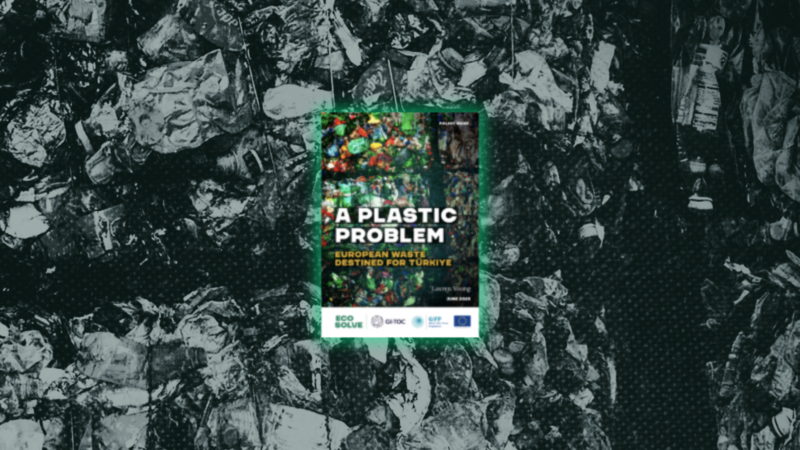A plastic problem: European waste destined for Türkiye
Since 2018, Türkiye has become the primary destination for Europe’s plastic waste, absorbing more than half of the EU’s total plastic waste exports. This shift follows tightening regulations in Asia and exposes the EU’s persistent recycling deficiencies. While most shipments are labelled as “clean recyclables,” this report examines a darker reality: widespread misclassification, corruption, and the enabling of transnational organized crime.
The report reveals how major EU exporters—including the UK, Germany, Belgium, and the Netherlands—take advantage of regulatory gaps to mislabel contaminated or mixed plastic as recyclable, circumventing EU and international laws. Türkiye’s weak enforcement, fragmented regulations, and entrenched corruption make it an easy target for both legal and illegal waste flows.
Ports like Adana, Mersin, and Ambarlı have become hotspots for plastic waste imports, with Adana alone handling over 60% of the national total. Satellite imagery, field interviews, and customs data consistently show open dumping, illegal burning, and hazardous storage of waste, much of which is unsuitable for recycling.
Multinational corporations and waste brokers exploit legal grey areas to offload low-grade waste onto Türkiye, bypassing their environmental responsibilities. Through subcontracting, blending of waste types, and obfuscating end destinations, they create a system of plausible deniability and profit. Organized crime groups further leverage this landscape through fraudulent recycling schemes, bribery, and the use of shell companies. Some operations have even been linked to Italian mafia groups and involve practices like carousel fraud, particularly within the UK’s PRN (Packaging Recovery Note) system.
Digital platforms, including Facebook and WhatsApp, are increasingly used to facilitate these illicit transactions, enabling anonymous, unregulated, and largely untraceable trade. Meanwhile, official visits to recycling facilities are often staged to hide non-compliance, making satellite imagery a vital verification tool.
To address these systemic issues, the report offers policy recommendations focused on strengthening enforcement, increasing transparency, and leveraging digital tools. Key recommendations include: mandatory pre-export documentation checks, real-time digital tracking systems, enhanced financial scrutiny, and cross-border cooperation. Holding private sector actors accountable and targeting corrupt officials are also essential to dismantling these criminal networks.
ECO-SOLVE leads the charge against environmental crime with its global, collaborative, data-driven approach. Our mission: transform data insights into impactful action; support law enforcement to disrupt illicit flows; empower communities; shape effective global policies. ECO-SOLVE is an EU-funded project within the Global Illicit Flows Programme.
Sign up to the ECO-SOLVE mailing list to receive regular updates about the project.


